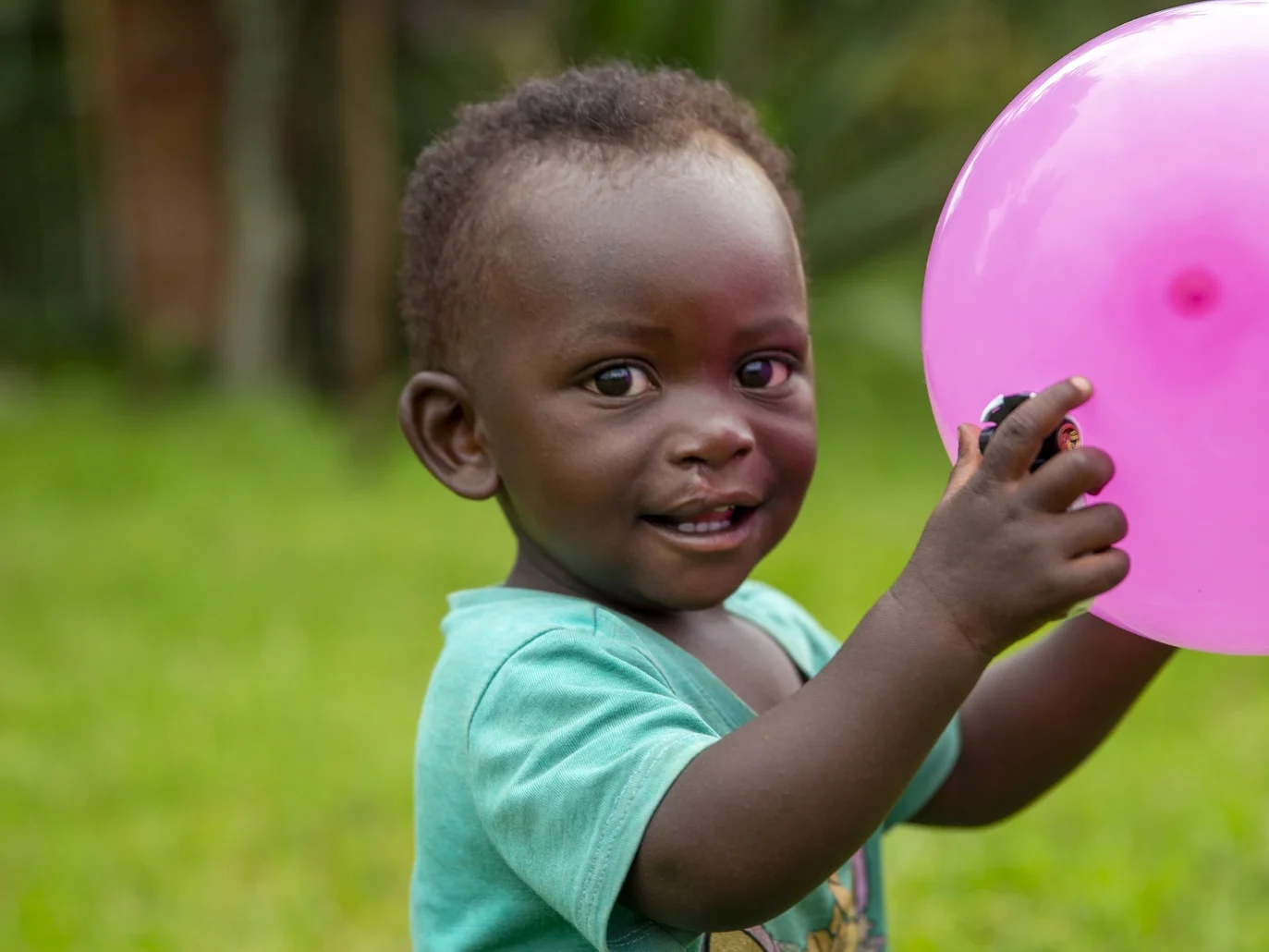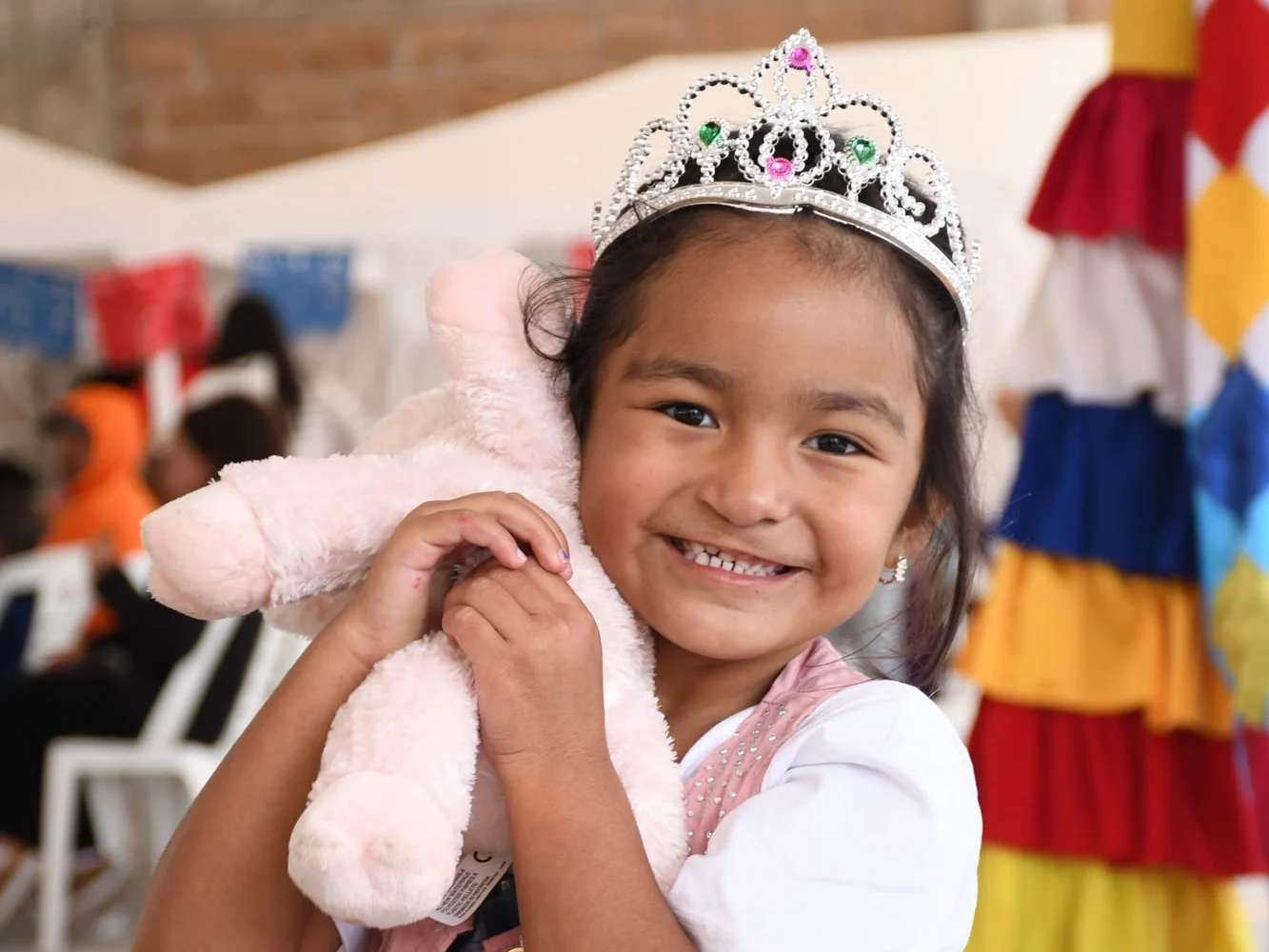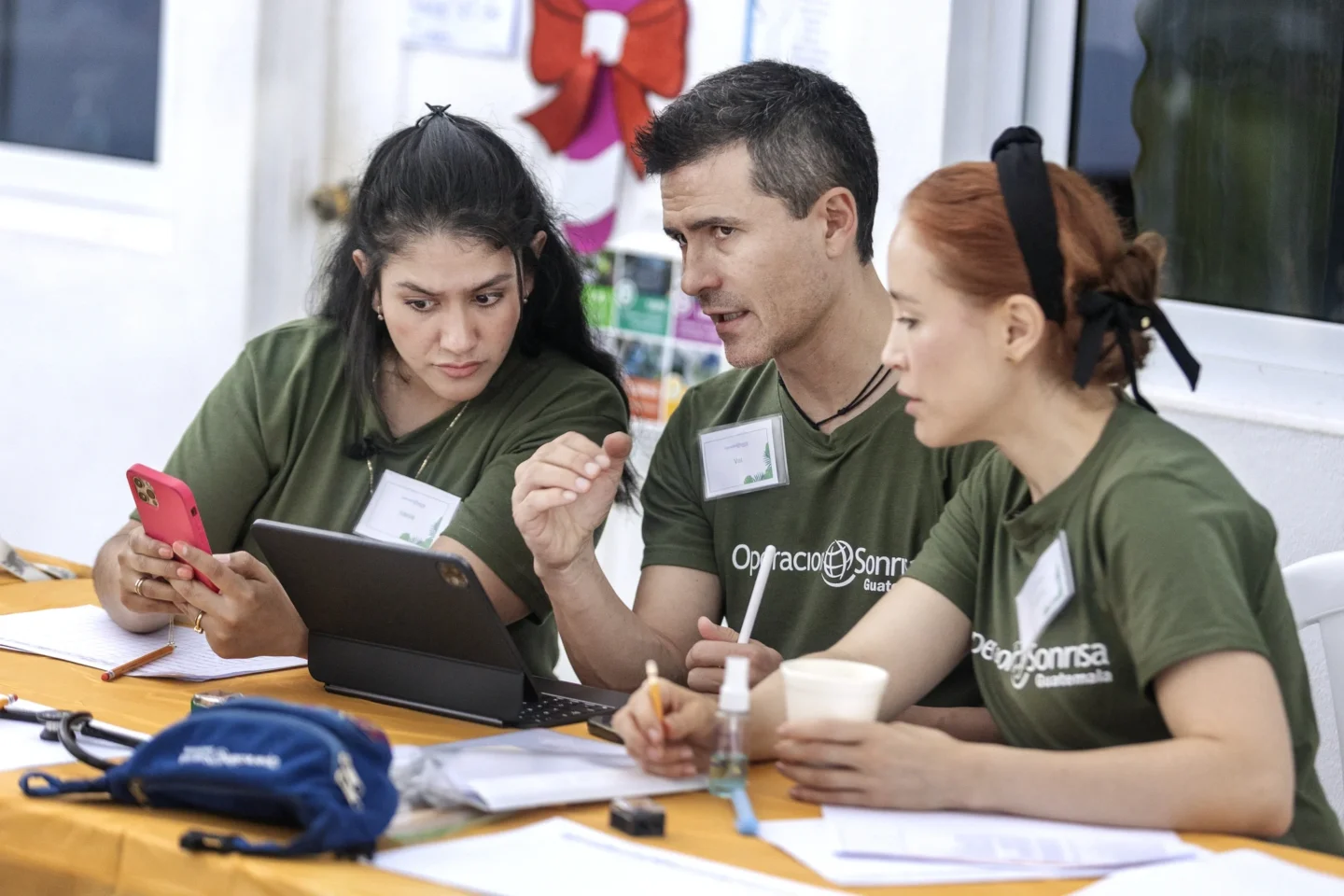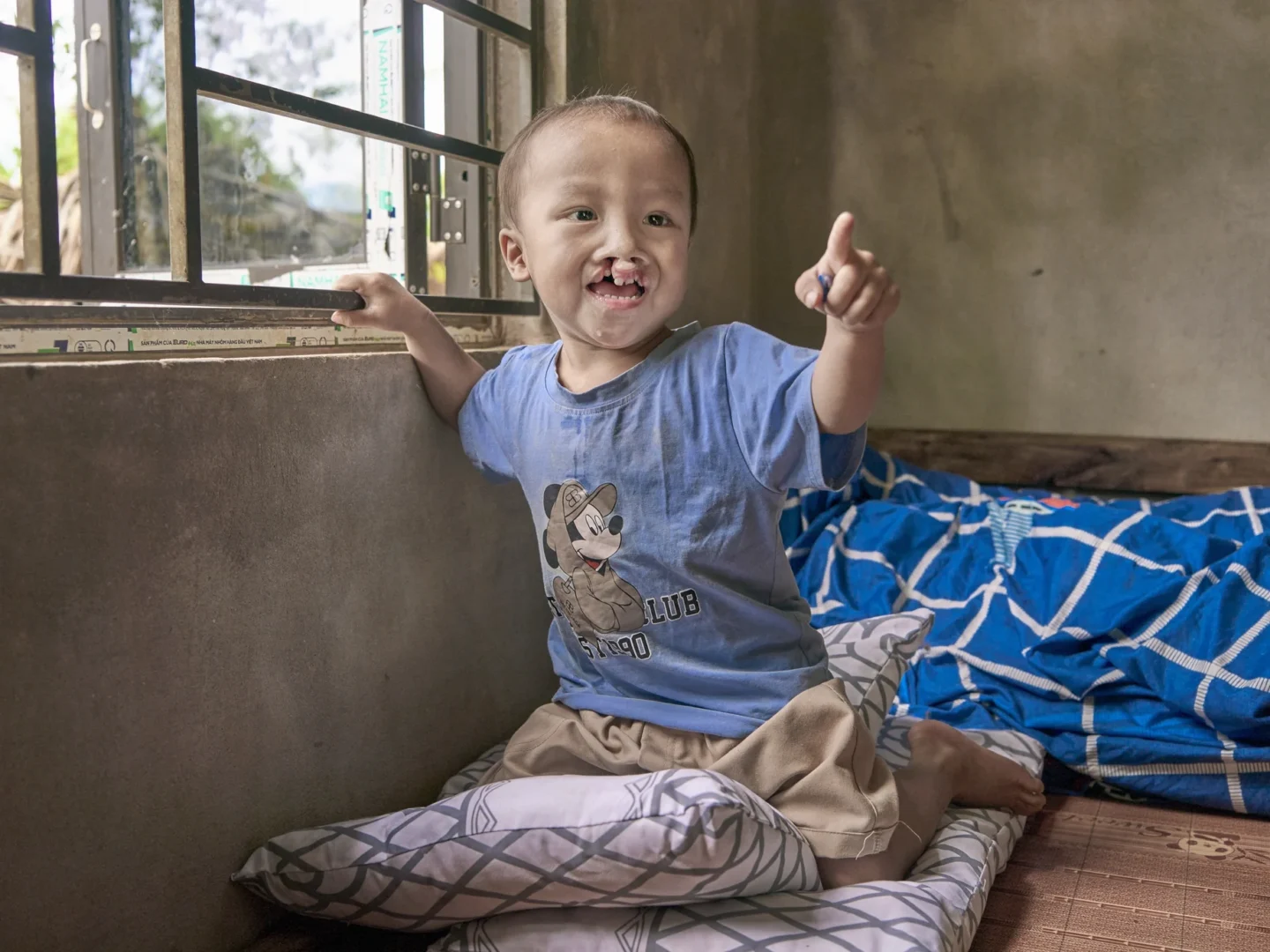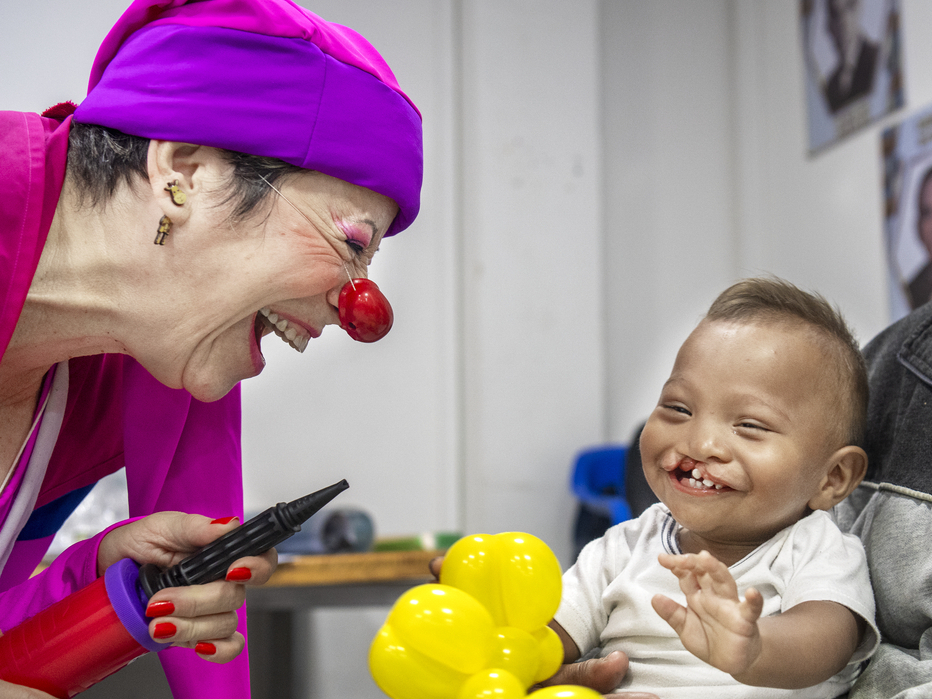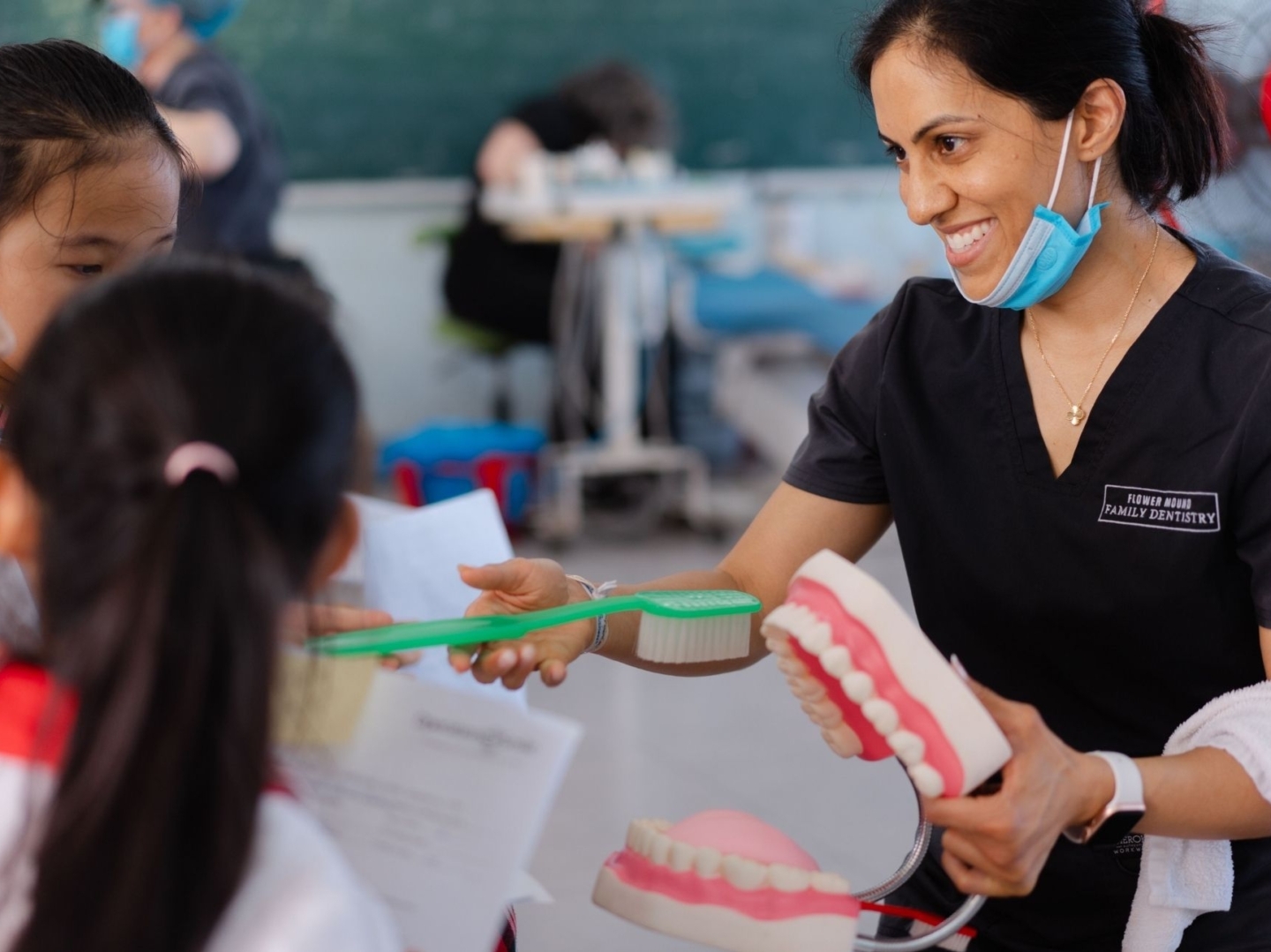Patients
The Winner

Editor’s Note: We’re thrilled to share this wonderful story from Operation Smile U-Voice student volunteer Hidaya Abdulrahim! Hidaya was born and raised in the south of Sweden but has since moved to Stockholm for studies at Karolinska University, where she became involved with Operation Smile Student Programs. There, she completed a bachelor’s degree in biomedical laboratory science in clinical physiology. She will soon complete her master’s degree in biomedical laboratory science. Hidaya currently works in a cardiac clinic, where she performs cardiac ultrasounds. She offers a unique perspective in her coverage of Operation Smile’s surgical training rotation at Jimma University Specialized Hospital in Ethiopia in late October/early November 2017.
As I was helping the medical records team, I met a young family: Parents Tesfasihu and Yusuf were there with their 2-year-old son, Ashenafi, whose name means “the winner.”
He is a happy little boy who loved to play “peekaboo” whenever we saw each other. During the whole recorded conversation between me and his parents, there are constant noises from him seeking our attention and play.
This was their second time at an Operation Smile medical program; both were surgical training rotations where Ethiopian surgeons receive training and education from Operation Smile volunteer surgeon educators. In March, they came to Jimma so Ashenafi could be treated for his cleft lip and cleft palate. Tesfasihu, Ashenafi’s 20-year-old mother, and Yusuf, 24, told me that, before then, they thought they were the only ones in the world with a child who had a cleft condition.
“Why did God punish us like this? What did we do that would make our son have to suffer?” Many thoughts like these went through their heads.
Yusuf says that they hid Ashenafi and didn’t let anyone see him. Even when they left their home to buy groceries, they would cover him up. When they told their families about their child’s condition, everyone was scared, they say.
“We were just getting through life day by day,” Yusuf says. “I work whenever there is job for me to do; I am an errand boy.”
“I don’t have a job,” Tesfasihu says. “I was staying at home, taking care of Ashenafi. Since I couldn’t breastfeed him (because of his cleft condition), I would have to squeeze breastmilk into a bottle and feed him that way.”
As we are talking, Ashenafi takes a few, unstable steps toward me, charms me with his smile and then suddenly starts running in the other direction, away from us as he giggles. He is miraculously fast, just like children can be.
“Catch him before he falls and hurts himself!” Yusuf calls out as Tesfasihu leaped up to catch Ashenafi, who by that point is shrieking with laughter.
As she sits back down with Ashenafi cradled on her lap, Tesfasihu continues: “One day, a doctor at the local clinic told us about Operation Smile and that there will be a program in Jimma. He advised us to come here back then.”

In March, they traveled eight hours by bus from their home to the program site. As they reached the hospital, they noticed something incredible – and felt a sense of total relief.
“For the first time we realized that we are not alone. We are not the only parents with a child like this. And better yet — there is a solution for it,” Tesfasihu says. “There were several parents with children who already had surgery by Operation Smile on earlier [programs]. They calmed us down, and when we saw the result of their children’s lips and palates, we felt so happy and relieved.”
In March, Ashenafi had a successful surgery for his bilateral cleft lip. This time around, they are back for a surgical repair of his cleft palate.
I ask them: “Now that you have been here before and seen this, are you helping others here by sharing your story, like others did during your first visit?”
“Yes, we do!” Yusuf says with a big smile. “We have told our story to the ones we meet that are here for the first time, and we are even showing Ashenafi as an example for them.”
I ask: “Is there any difference between last time and this time?”
“There were more people last time, and we were waiting for the surgery for one week,” Yusuf says. “So we went home and came back. This time it feels like there are less people here. Everything is going smoothly, and we are having surgery on the second day already. Last time we were so nervous and worried. Probably on the day of the surgery we will be very nervous, but not as much as last time.”
I ask: “So what is your view of the future? More children?”
They are very scared that another child may be born with a cleft condition, they told me, but they know help is available if they need it.
I had constant contact with the family during their time at the site. The parents impressed me with their maturity and their love toward each other and their son. Ashenafi is a very active and happy child, and we were playing a lot before his surgery. I also carried him into the operating room, watched the procedure and then carried him out from the recovery room to the parents.
The whole time, they stayed positive; Yusuf, with his constant, bright and big smile and Tesfasihu, a bit shy, always greeting me with hugs and kisses.
I ask them one last question: “What is your biggest wish for your son?”
I see two pairs of eyes shining bright. Tesfasihu, who has been more shy during the conversation, was quick to offer: “That he will grow up to be a good person. That he will educate himself and help people like he has been helped. That he will return the blessings that has been given to him. We have no words to express our gratitude for Operation Smile and the change they have made in our lives.”
Yusuf added: “We wish there was some way for us to pay back, but all we can do is to pray for you and send our blessings.”






